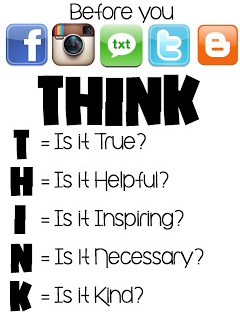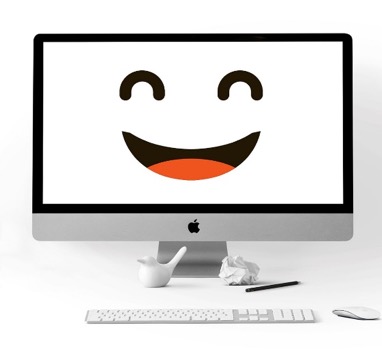Personal and Private Information Online
Be careful what you share online.
People can pretend to be anyone on the Internet.
Sharing personal information is safe online.
Private information is not safe online.
*Remember the government and the bank will never email or text you to ask for private details.
Here are examples of personal and private information.
Do not share private information online.
| Personal | Private |
|
|
These pictures and posters have tips that help you keep a good reputation online.
What goes online, stays online!

Is it true?
Is it helpful?
Is it inspiring?
Is it necessary?
Is it kind?

Netiquette

- Do not steal other people’s ideas
- Never type when you are mad or tired. It can always wait.
- Do not write in all CAPITAL letters, people will think you are yelling.
- Will the person you are typing to like the joke you are telling or the prank you are pulling?
- Is the picture or story something you want public? Think about it for a bit.
 |
Please finish page 21 of your workbook. |
Now click on the next chapter.

